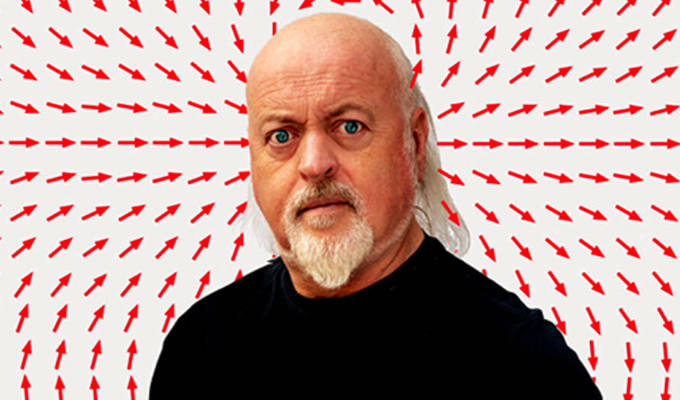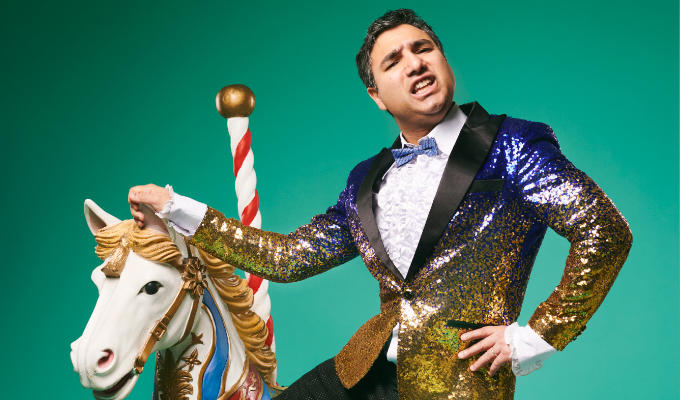Looking for the punch line
Matt Price on the parallels between comedy and boxing
I interviewed professional and amateur fighters for a few years, boxed as an amateur superheavyweight and learned the hard way that I wasn't suited to being repeatedly punched in the head.In his book On The Road, Frank Skinner says people always use inaccurate analogies to explain stand-up comedy – including comparing a comedian to a boxer. But there are many similarities between the two; though I would also like to add, on the off-chance Frank reads this, that I really enjoyed his book.
Young men (and it is predominantly men) get old and jaded very quickly in both disciplines. Speaking to rookie professional fighters after their first win and then meeting them a few years later, after a couple of defeats, was like meeting two different people. I was told by a boxing trainer once: ‘It's not why you start. It's why you stay.’
Those at the bottom make relatively very little money and only a select few go on to fame and fortune. Comedy and boxing are all-consuming obsessions, certainly for the first few years, and require a level of dedication and personal reflection that most ‘normal people’ would struggle with.
Listening to comics make their excuses is so similar to boxers making theirs. The wasted opportunities and the triumphs. The regrets. The realisation that it isn't going to happen and having to adjust expectations. The respect is also there between acts, as it is in a stable of fighters. There comes a point however, where the camaraderie quickly disappears. A comic dying on stage is like a boxer getting stopped. The rest of the herd can barely bring themselves to outwardly acknowledge it. Maybe it's the fear of it rubbing off on them and the misfortune spreading.
Silverware or an amateur title of any sort is useful in joining the professional ranks in both trades, but doesn't guarantee success. Professional boxers start out doing four-round fights and most will never go on to compete at championship level. Different sized venues are generally in keeping with the ability of the comic or boxer. Occasionally a youngster gets a shot at the big stage or an old campaigner might get a long overdue opportunity.
Making the transition from amateur to professional can be a long and painful process. Boxers talk about ‘pro tricks’, the ways of dealing with an opponent that can appear ungainly to the purist, but that get the job done or at least allow survival when all eyes are focused on you and what really matters is getting a result. A shift in body weight can weaken an opponent’s legs in the clinch, making them vulnerable, and while hack putdowns may be frowned upon, they prove effective against hecklers.
Changing rooms can be friendly but intense. They can also be painfully lonely. Mentally and physically, you have to be right. The language that comics use furthers the analogy. ‘I tore the room to pieces. Destroyed the place. I roofed it.’ It is the language of power and control. Pacing and timing are similar. You have set the right pace or you will struggle to last the distance. You can also go in too hard and run out of steam.
Rituals and superstition are also common in both. I knew an amateur prospect who had 12 wins in a row and then gave up because he couldn't get past the psychological hurdle of the 13th fight. His trainer suggested an exhibition bout, or that they pencil in a fight that didn't really happen so he could go straight to his 14th, but the prospect was convinced that he would lose. He never boxed again.
Similarly, I have a friend of mine who is an excellent comic who told me that he'd always stormed a particular room if he walked on from stage right. He claimed to always struggle when asked to walk on from the left. Watch how comics prepare for a gig and there is often a clear pattern to their behaviour.
How you conduct yourself outside of the ring is every bit as important as what you do inside. Making the right decisions and living the right lifestyle affects the longevity of your career. In boxing when a career is over, some become trainers or work in promotion and command instant respect, much like some of the elder statesmen on the comedy circuit. Some simply destroy themselves.
The desire might fade over the years and yet I wonder if anyone ever really retires. It's nearly always tempting to come back for one last shot at glory in whatever capacity. Maybe not at world level, but just to be up there and feel the adrenaline.
Comedy and boxing both cause fierce debate among audiences. There are a lot of experts in the crowd who are willing to come up to you afterwards and voice their opinion on your performance. One world champion told me that on the night he won his belt, that he wanted the other British fighters (including a very close friend) to lose so that he so that he could take all the glory for himself and receive the loudest applause of the night.
The psychological aspects of both are very similar. Recovering from an extended period on the road as a comic can be very much like waking up the day after a fight, with unexpected aches and pains and a need for adrenaline. Victory means peace of mind and being able to shrug off any tiredness, while defeat can mean reliving every moment in your mind, over and over again because as the old boxing adage goes, ‘there's no place to hide.’
Published: 14 Oct 2009






